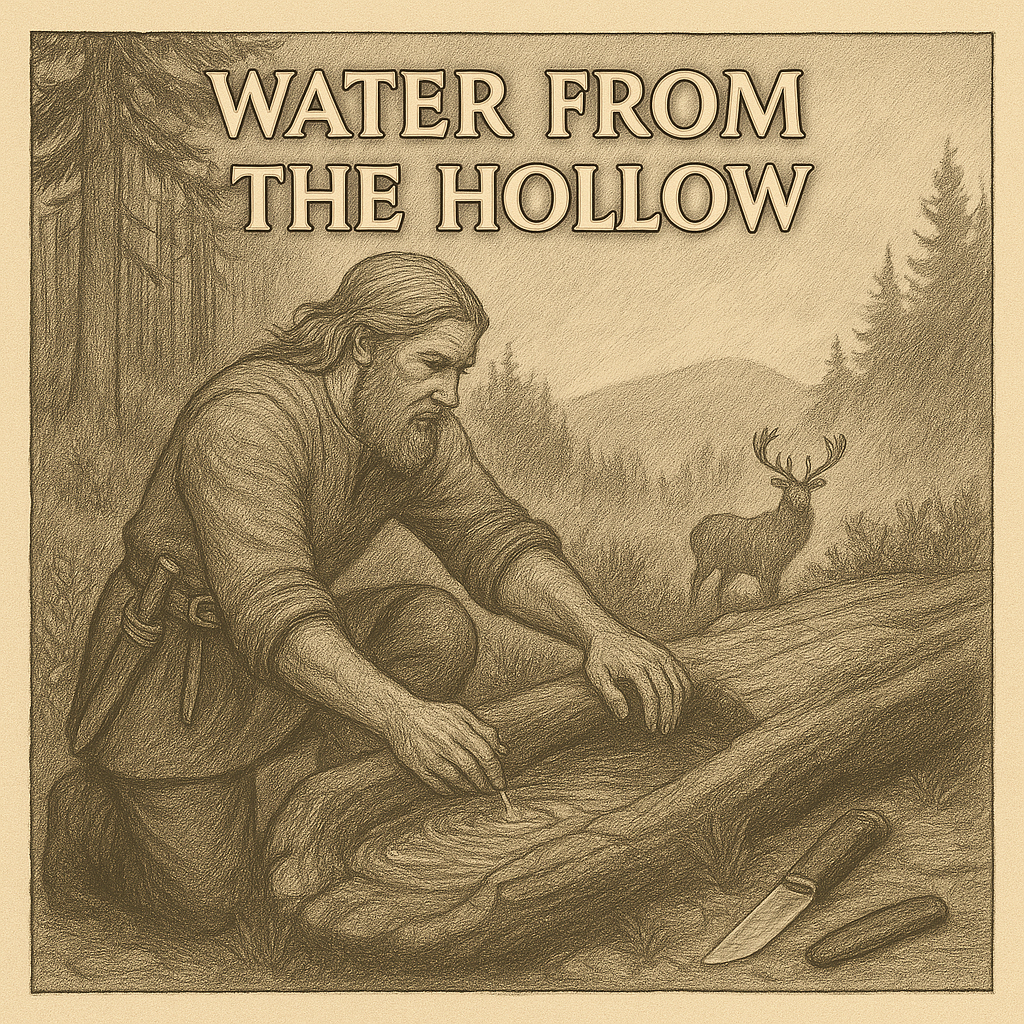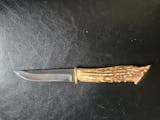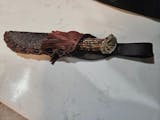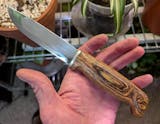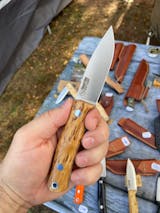Finding and Purifying Water in the Wilderness Without Gear
The morning air carried a faint bite, a reminder that summer would not linger long. Ragnar woke with the sun low and pale, its light filtering through the narrow thatch of his makeshift roof. His limbs ached, not from pain, but from use. It was a good ache. Familiar.
He sat up and listened. No birds. No river nearby. The silence wasn’t comforting now. It meant the one thing he needed most—water—would not come easily.
He packed his firestone and blade, checked the bindings on his boots, and stepped out into the open. The grass glistened faintly. Dew. He ran his fingers through it, lifted the moisture to his lips. It would not do. He needed more.
The land sloped east. He moved that way, trusting gravity. Where the land dipped, water often followed. The trees here were younger, more spaced apart, but still alien. No signs of known herbs or mosses. Even the soil underfoot felt different, packed harder, less loamy than he liked.
After an hour’s walk, he found a dip in the terrain—a long, shallow hollow littered with stones and knotted roots. At its center, a patch of darker soil caught his eye. Damp.
He knelt and pressed a hand into it. Cool. Soft.
Using his seax, he dug into the earth, carving a narrow trench no longer than his arm. The blade cut cleanly through the loam, slower as he hit harder clay beneath. After some time, a shallow pool of water began to well.
Ragnar leaned back and let it rise. The first water was cloudy. He scooped it out and waited. When the next pool formed, it was clearer. He cupped it in his hand, sniffed, then sipped.
It was clean.
Not cold like spring water back home, but fresh enough. He drank deeply, then again. His body seemed to soak it in like parched soil. He filled a hollowed gourd, capped it with bark, and stood to scan the hollow.
Something caught the corner of his eye—a shape half-buried in the brush beneath a fallen limb. He approached slowly, blade in hand.
It was leather. A satchel.
Old, but not ancient. Not of his time. The stitching was too fine, the shape too deliberate. He knelt and tugged it free.
Inside were scraps of cloth, faded and torn, a rusted metal tin with unreadable lettering, and—
—a knife.
Not of his make. The blade was laminated steel, the edge fine and narrow, shaped with a purpose he didn’t know. It was worn but intact. He turned it in the light, watching how it caught the sun.
The handle was resinous, smooth to the touch, strange but not unwieldy.
He pulled his own belt knife and held them side by side. His was thicker, more rugged, with a convex edge meant for force and carving. The new one was lean, precise. Built for slicing. For skinning?
He tested its edge against a sliver of bark. It glided through like breath.
He did not smile, but his eyes narrowed with curiosity. Whoever had made it knew blades.
He strapped the modern knife to his pack. Not as a replacement. As a comparison. He would use both. See which cut better. Which dulled first.
And in time, he would understand why it had been left here. And by whom.

